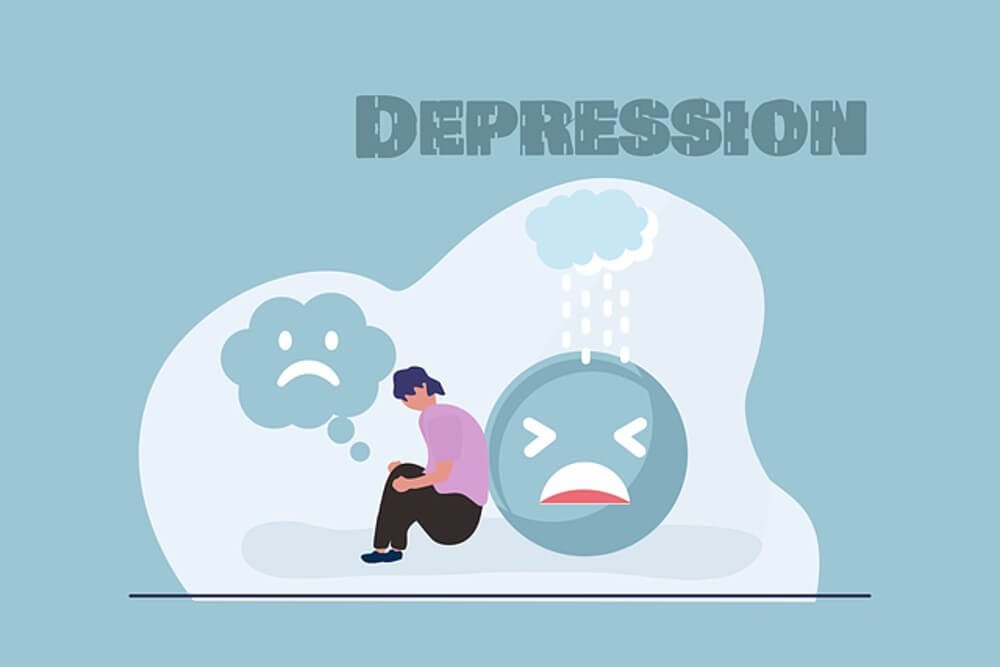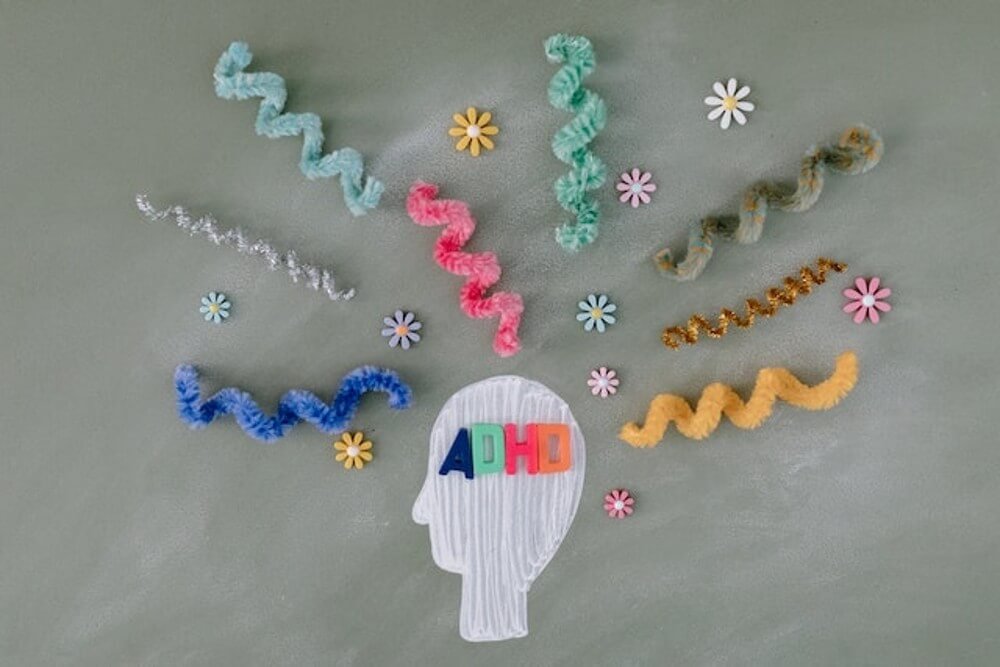Meditation involves conditioning your mind to reroute its thoughts and focus regularly.
There are numerous types of meditation, the most common ones being guided, mindfulness-based, walking, sound bath, mantra, spiritual, and transcendental.
Yoga can be a type of meditation and progressive muscle relaxation too.
Regardless of the type of meditation practice you choose, meditation is becoming more and more popular with increased awareness about its numerous health benefits.
This article focuses on how meditation positively alters the brain and affects your mental health. Find out everything you need to know on how mediation can improve your mental health as you read on. Come along!
30 Mental Health Benefits of Meditation

These are the top 30 ways meditation improves your mental health:
Meditation Boosts Your Mood
Practicing meditation can boost your mental health by improving your mood.
When you meditate, it triggers your body’s release of feel-good endorphins that make you happier. It also releases serotonin which naturally stabilizes your mood.
Meditation Fights Brain Fog and Keeps Your Brain Younger
Brain fog could be the cause of your difficulty focusing, forgetting things easily, and concentration problems.
Of course, stress is frequently the culprit, but a regular meditation routine can help you de-stress and become more present by allowing you to focus on your breathing.
Meditation Enhances Concentration
Focusing on professional activities or hobbies like watching a movie can be challenging when so many things run through your mind. Meditation calms the mind, allowing you to concentrate on the tasks.
Mediation Helps to Relieve Pain

According to the American Psychiatric Association, it’s common for mental health issues and chronic pain to coexist, and research indicates that mental health issues and chronic pain may intensify one another.
Fortunately, you may find that regulating pain is easier if you incorporate meditation into your regimen.
Meditation Helps You Manage Anger
Your mind and body bear the brunt of harbouring resentment and mentally replaying wrongs from the past.
Practising meditation enhances your ability to focus on the now while teaching your brain how to manage and analyze your anger as it comes.
Meditation Regulates Blood Pressure
Numerous studies have established a connection between high blood pressure/hypertension and mental health problems, especially in the elderly. Meditation can reduce heart strain and helps to lower blood pressure.
Meditation Helps You De-Stress
Stress management is one of the well-known advantages of meditation. Meditation can help you tackle stress by lowering cortisol levels and inducing relaxation.
Meditation Reduces Depression

Meditation alone isn’t enough to cure depression. However, regular meditative practice helps with depression by significantly changing your brain and reducing your depressive episodes by helping you notice and manage triggers better.
Meditation Improves Circulation
Meditation can improve blood circulation to your organs, especially the brain. This positively impacts your hippocampus, limbic system, and amygdala, improving your mental health.
Meditation Boosts Self-Confidence
Low self-esteem remains one of the primary contributors to mental health problems like depression and anxiety. Fortunately, meditation can give you fast confidence boosts.
Meditation Ensures Better ADHD Management

There’s such a thing as meditation and yoga for ADHD. The prefrontal cortex, a region of the brain involved in planning, focus, and impulse control, thickens during meditation to help with ADHD.
But, unfortunately, it also increases the amount of dopamine in your brain, which is deficient in ADHD brains.
Meditation Improves Emotional Health
Mediation is an amazing way to improve your emotional health. It does this by improving your self-image and life outlook, reducing negative thoughts, stimulating happiness, etc.
Meditation Can Help You Feel More Grateful
There’s such a thing as gratitude meditation which improves your mental health by filling you with an appreciation for nature, people, and the things around you.
Meditation Eases Anxiety
This is pretty straightforward—meditation reduces anxiety by decreasing stress levels. Meditation for stress anxiety typically involves breathing exercises that help to relax your mind and body.
Mindfulness meditation also manages anxiety by ensuring you focus your mind on the present and notice feelings/sensations without judging or evaluating them.
Meditation Enhances Self-Awareness
Some meditation techniques can help you become a better person by fostering a deeper self-awareness.
A good example is self-inquiry meditation which has the clear goal of assisting you in better understanding who you are and how you interact with others around you.
Meditation Reduces Your Risk of Age-Related Memory Loss
Meditation can sharpen your memory, and this benefit is particularly a big deal for ageing individuals who are naturally at risk of memory loss.
According to research, older persons experiencing preclinical memory loss can benefit greatly from relaxation techniques like meditation or music listening.
Another study on patients with mild cognitive impairment or Alzheimer’s Disease showed that long-term silent, sitting meditation techniques “may be able to slow down the neurodegenerative process in crucial areas of the brain.”
Meditation Helps You Fight Addictions
Meditation can help you break unhealthy habits like alcoholism, porn addiction, smoking, etc.
If you’re dealing with substance abuse, it can help you fight withdrawal symptoms and enhance your frontal cortex performance for better thinking and planning in the war against addiction.
Meditation practice also alters the brain to reduce fear, improve your motivation to combat your addiction, and enhance your motor control ability by impacting the amygdala and activating your anterior cingulate cortex.
You’ll Sleep Better with Meditation

Adequate sleep is an essential part of mental health. Meditation can help you sleep better and fights insomnia by triggering theta brainwaves, the same mental state your brain is in when you’re about to sleep.
Meditation Makes You a Kinder and More Empathetic Person
According to HealthDirect, “research is showing that people who are kind and compassionate are more satisfied with their lives, have better physical and mental health, and have stronger relationships.
In addition, being kind and compassionate can help other people, and make you feel good too.”
As you must have already realized, mindfulness meditation makes you kinder by inducing prosocial feelings that help you become more forgiving and caring toward others.
Meditation Improves Your Patience and Tolerance Levels
Your patience and tolerance for others will increase after meditation since deep self-reflection, and greater self-awareness are key components of the practice.
As such, you’ll be able to identify areas in which you can be more understanding, patient, and loving by looking inwards at your own life and thoughts.
When you practice meditation, you’ll learn to accept yourself for who you are. This will also help you accept others for who they are regardless of differences.
By becoming more tolerant and patient through meditation, you’ll also improve your mental and emotional health.
Meditation Improves Digestion
The gut-brain connection theory shows that the human gastrointestinal and brain are well connected. According to medical experts, your troubled intestine can send messages to your brain and vice-versa.
As such, worry, stress, or depression can either induce gastrointestinal or stomach discomfort, just as your stomach troubles can affect your mental health.
The good news is that you can manage these concerns with improved digestion, which meditation can improve.
Meditation helps your digestive system by enhancing mind-body balance and reducing stress. This helps with constipation, irritable bowel syndrome, indigestion, and other stomach problems.
Meditation Helps You Live in the Moment
Mindfulness meditation centres around living in the present. You must let go of the past and adjust your futurist expectations.
Living in the moment means living intentionally and being conscious that every breath you take is a gift to be appreciated. Being present will make you happier while increasing your capacity for coping with unpleasant emotions.
Meditation is a Healthy Way to Cope with Trauma
Did a loved one pass away, or are you healing from prior abuse? You’re likely facing trauma and sadness every day.
Fortunately, meditation can help you process and overcome these feelings better by offering you emotional security and ensuring that you focus on what’s important.
Meditation Enhances Metabolism
Meditation improves metabolism, which has effects on your mental health.
However, according to studies on metabolism and mental health studies, those who frequently experience mental health problems also tend to have slower metabolisms.
Meditation Regulates Food Cravings and Binge-Eating

The truth is that what you eat can affect how you feel. While healthy meals like vegetables, legumes, and fruits can lower your risk of depressive symptoms, sugary foods can exacerbate stress and anxiety symptoms.
Worse still, the more you eat sugary and high-flour meals, the more your brain is trained to crave them.
As we mentioned earlier, meditation can help you fight alcohol and drug addiction by improving your ability to manage impulses.
This improved self-control also extends to unhealthy eating habits like junk food cravings, binge eating, etc.
Because of this, meditation is also one of the best ways to achieve long-term weight loss for better physical and mental health.
Meditation Helps You Become More Creative
Meditation (especially focused-attention meditation and meditation based on open monitoring) is one brain exercise that can boost your creativity and open you up to new ideas.
A controlled state brought on by open monitoring meditation encourages divergent thinking that generates numerous fresh ideas.
Meanwhile, you can improve your open monitoring meditation practice, all thanks to the stabilizing and strengthening effects of focused attention meditation on your attention, discipline, and focus.
Also, effective and efficient creative job execution requires a strong, consistent focus.
Meditation Helps You Resist Perfectionism
Do you have perfectionistic tendencies? Meditation can help you curb them. Striving for perfection will make you unhappy and result in eating problems, anxiety, sadness, and self-harm.
Perfectionism might eventually force you to cease making efforts to succeed, negatively impacting your connections, schooling, job, and quality of life.
Fortunately, regular meditation can help you fight your urge to be perfect by ensuring you’re more aware of your perfectionistic thoughts. This is the first step towards making the necessary adjustments.
Meditation Helps You Manage Chronic Illnesses Better
Poor mental health increases your risk of chronic physical conditions, while physical health challenges can adversely affect your mental health.
As such, anything you do to improve your physical health also benefits your mental and emotional well-being.
That said, improved disease management is one of the most popular meditation benefits.
For example, meditation improves your physical health by boosting immune functioning, enabling you to manage stress, high blood pressure, arthritis, heart problems, and other physical health conditions better.
Meditation Aids Productivity
Meditation improves your productivity. First, it ensures that you have the motivation and ability to work.
Secondly, meditation makes you more creative and helps your brain function better for work. With meditation, you’ll also learn to concentrate on your work.
Meditation Reduces Loneliness
According to a study, loneliness significantly decreased among participants of a group that participated in a mindfulness intervention that lasted an average of 8 weeks.
Final Thoughts
There are numerous physical, mental, and emotional health advantages tied to meditation.
So, it’s a good idea to explore the various types and choose the best-suited one to see if you’d like to increase your ability to concentrate, lessen stress, or deal with depression, addiction, chronic pain, etc.
In summary, regular meditation induces a chain reaction of improved mental functioning.
FAQs
What is Meditation?
The practice of meditation involves training your mind to become more alert, aware, and emotionally composed.
At its most basic, a meditation routine can include taking a few deep breaths through the nose after getting comfortable on a chair or floor, holding your breath for a moment, and then exhaling with your nose.
When meditating, you are to bring your mind back to your breath when it wanders without judging or analyzing your intrusive thoughts.
Does Meditation Work?
Yes, meditation works, depending on your needs and what you wish to achieve. For example, meditation for sleep can help you deal with insomnia and improve your sleep quality.
Meanwhile, meditation for anxiety deals with stress, burnout, and depressive symptoms. So, it’s important to explore various meditation types and choose the one that suits your needs the most to get the best out of this practice.
